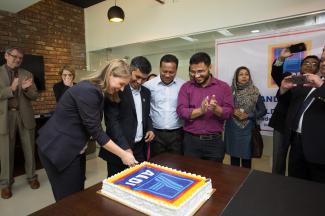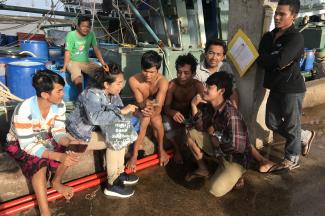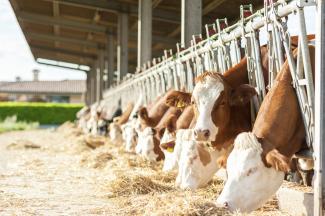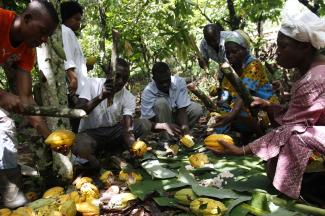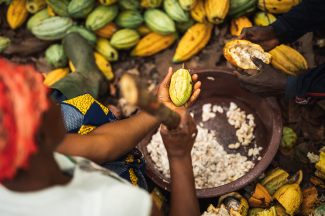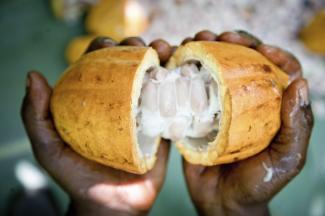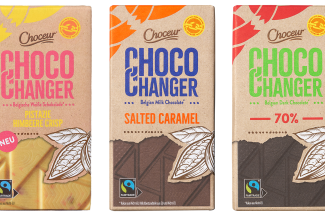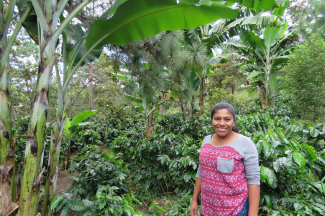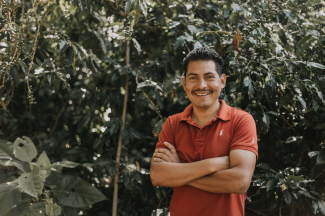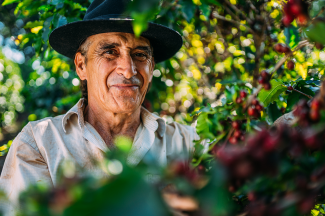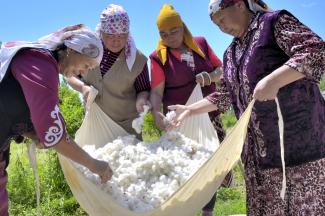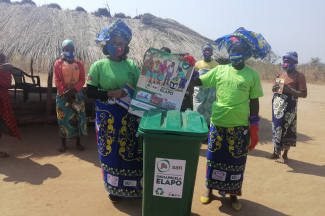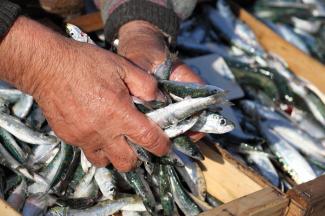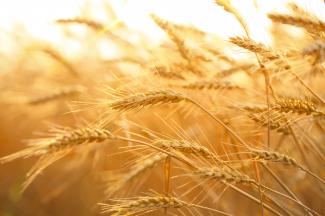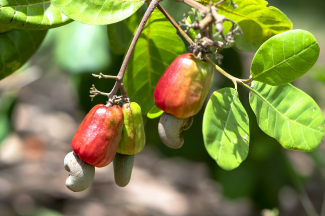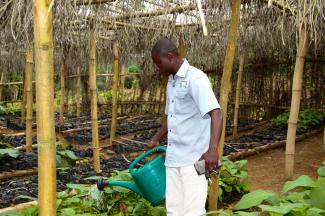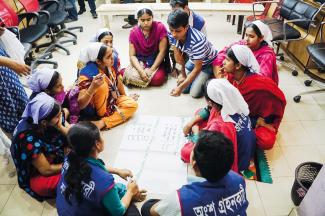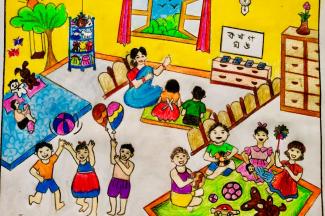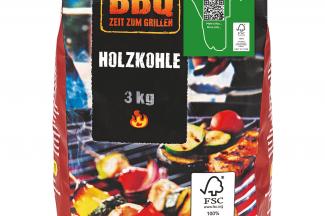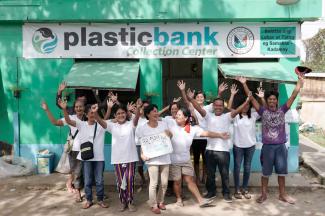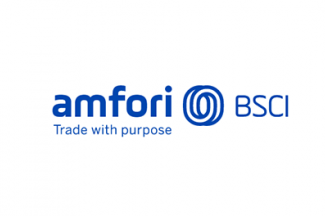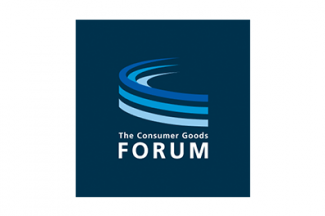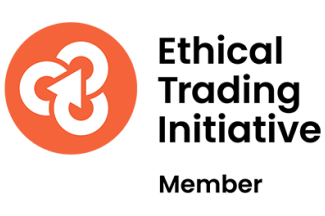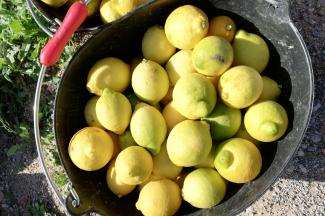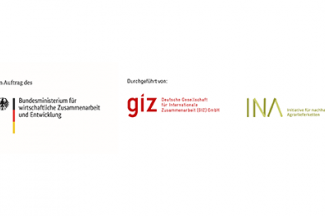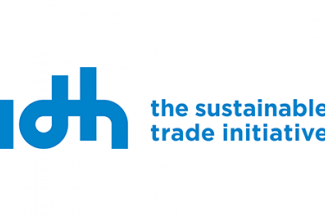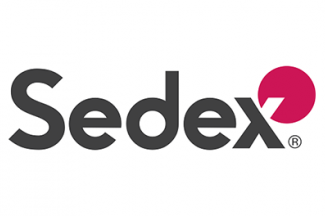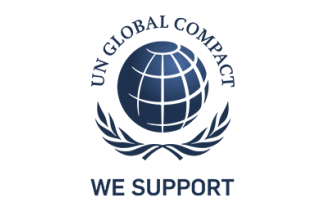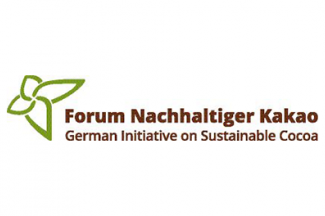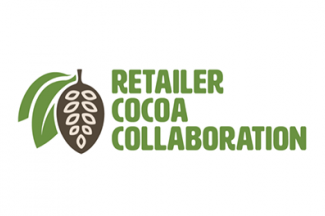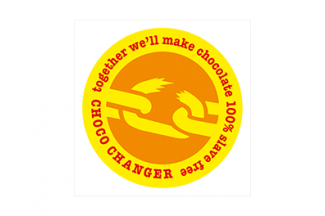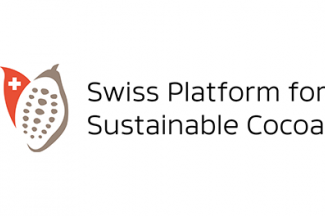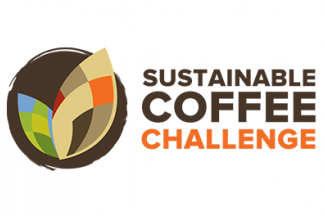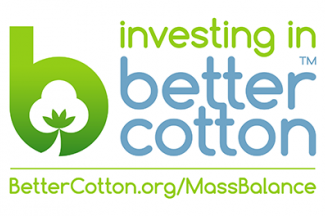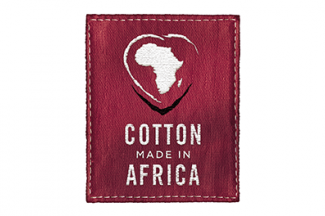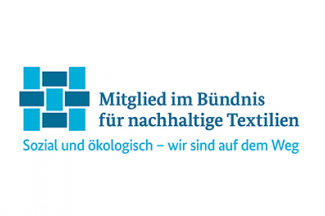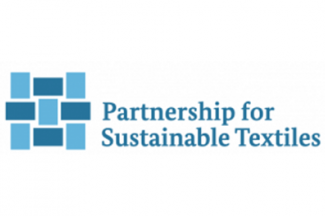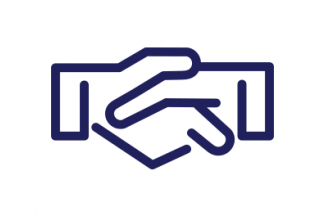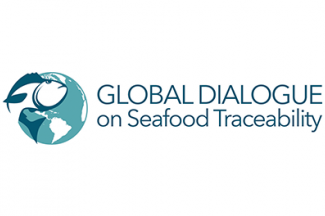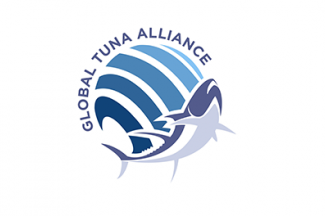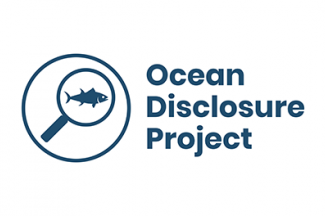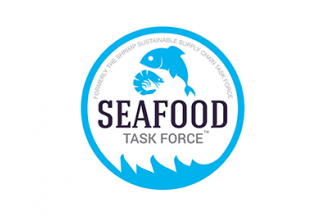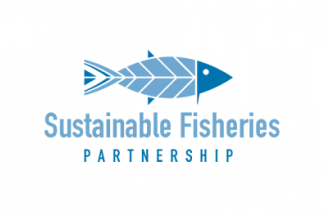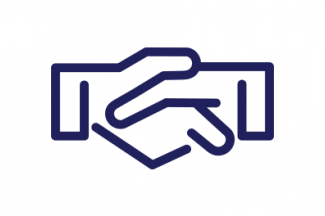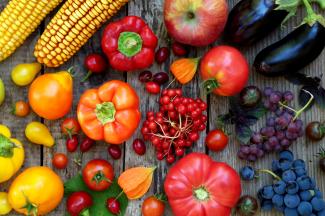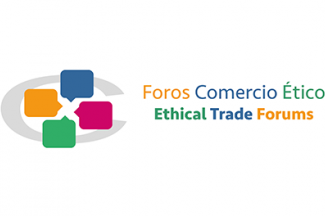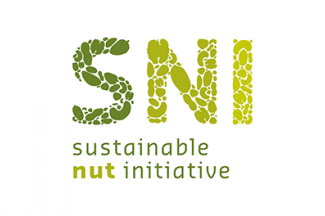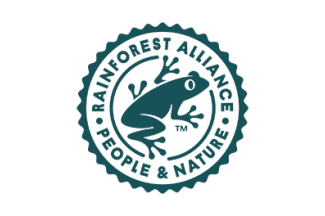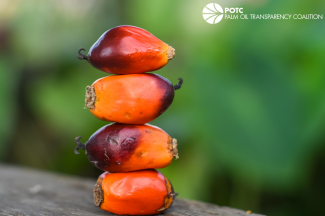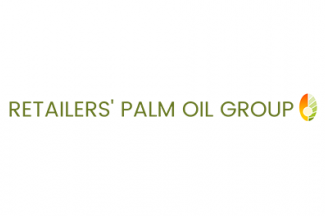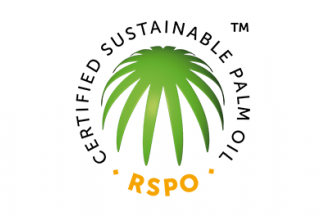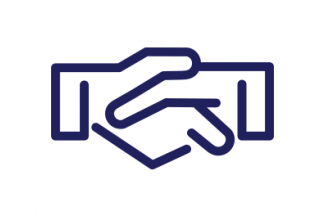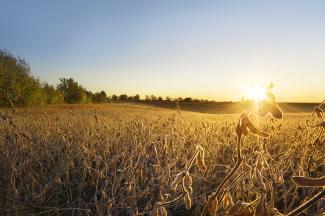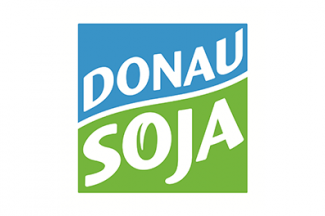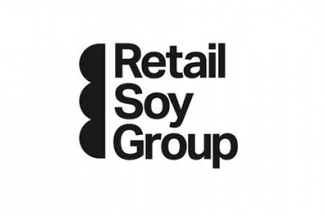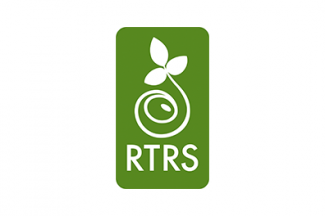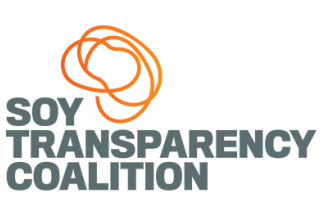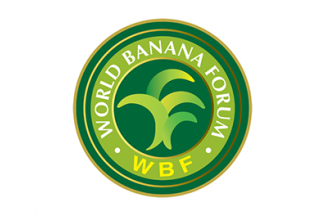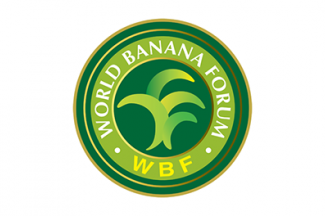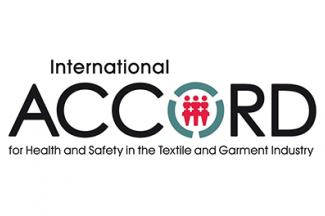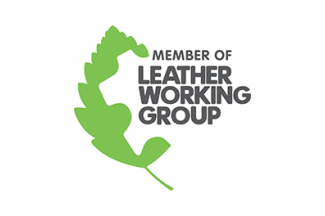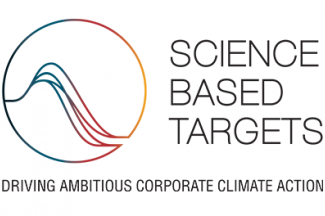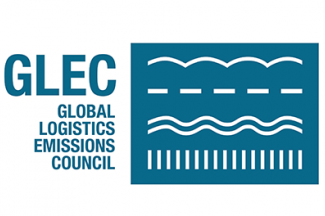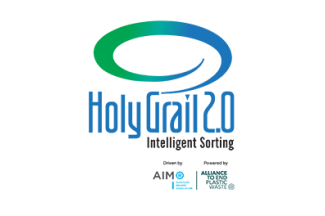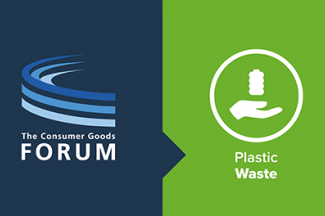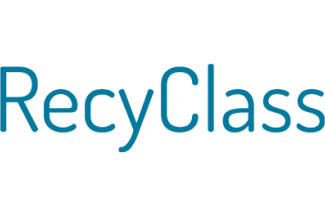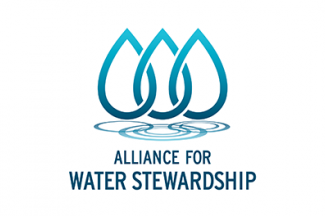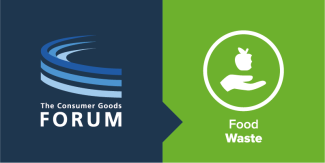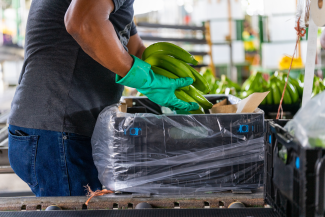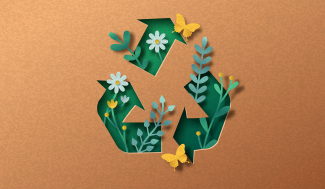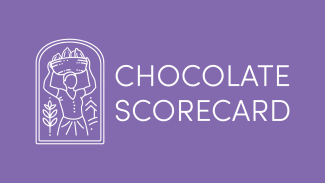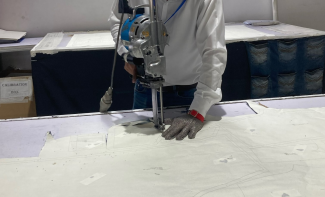
Resource Efficiency
Our Vision 2030:
Using resources wisely and protecting ecosystems.
Our Approach
Sustainable buying practices are essential for the long-term success of our business. Together with our business partners, we work towards increasing transparency and continuous improvement within supply chains.
We want to increase the share of sustainable products available to our customers. Our aspiration is that our products are made in a sustainable way and that we consider environmental and social criteria in our global supply chains - from raw materials to final production.
We will reduce food waste across our business, make other operational waste reusable or recyclable, reduce our own-brand product packaging weight and make the packaging we use 100% reusable, recyclable or compostable.
Our Action
Standards
The ALDI SOUTH Group’s commitment to corporate responsibility is not restricted to meeting minimum legal requirements. Our aim is to go above and beyond by defining and strengthening sustainability as a quality factor for our products. We focus on both the resources used in our products as well as the working conditions and environmental standards in production.
Transparency of supply chains
We attach great importance to sustainable production conditions in the manufacturing of food and non-food products. Supply chain transparency is the foundation for all our sustainability measures. Without the knowledge where our products come from, we cannot ensure compliance with our requirements, analyse risks, monitor or implement projects. We work with our business partners to increase the transparency of our supply chains so that we have a better understanding of the origins of the products we sell and the raw materials we use in our products.
Transparency: Non-Food
In order to offer greater transparency to our customers, we are publishing the addresses and number of employees of all our main production facilities used for the manufacturing of garment textiles and shoes bought by the International Buying department. Production facilities are classified by product groups or country and the information will be updated bi-annually.
Transparency: Food
In 2021, we published the names and addresses of our direct business partners (tier 1 suppliers) for bananas & pineapples, coffee, and fish & seafood. Due to technical reasons, the publication of the remaining food high-priority supply chains business partners has been postponed to 2023.
National traceability platforms
In order to offer their customers a higher transparency for products, ALDI SOUTH Germany and HOFER have established traceability platforms. With the help of a QR code or a tracking code on the packaging, the respective product can be traced back to its origin.
- ALDI SOUTH Germany: Traceability platform for fish, meat, or eggs
- HOFER: Check your product platform for fish, meat, soy, organic or fruit
Business partners
The relationships we have with our business partners are based on mutual respect and trust, it forms the foundation for all our supply chain activities.
We expect our business partners to comply with all our social and environmental standards, e.g. ALDI Business Partner Sustainability Standards, and we pay particular attention to production conditions in countries where adherence to these standards cannot yet be taken for granted. In these countries, we want to contribute to the improvement of working conditions and the protection of the environment. We do this by maintaining an ongoing dialogue with our business partners, working together on projects and monitoring activities to ensure our requirements are implemented and adhered to in all production facilities used for ALDI production.

High-priority supply chains
More sustainable agricultural practices and the responsible use of resources help protect the environment and ensure the long-term availability of resources in the future. As a global retailer, we will create lasting change by focusing on our activities on high-priority raw materials and commodity groups.
Cocoa
Cocoa is grown by smallholder farmers who may face difficult working and living conditions. We are committed to fostering fair working conditions and environmentally friendly production in the cultivation of cocoa. We continue to increase the amount of certified sustainably sourced cocoa. We collaborate with other stakeholders on projects on the ground and are working with our business partners to increase traceability of our cocoa.
Coffee
Coffee is among the world’s most-traded raw materials and is primarily cultivated by smallholder farmers in sub-tropical regions. The ALDI SOUTH Group is committed to fostering fair working conditions and environmentally friendly production in the cultivation of coffee. We are sourcing independently certified products to ensure that producers receive a fair price for their products as well as adapt to climate change and fighting deforestation.
Cotton
Cotton accounts for the majority of all fibres used in the garments and household textiles offered by the ALDI SOUTH Group. Whilst cotton is a renewable natural resource that is fully biodegradable, it is also linked to human rights and environmental risks in the countries where it is grown. By 2025, all our ALDI-exclusive garments and household textiles products will be of either recycled, sourced or certified according to internationally recognised sustainability standards.
Fish and seafood
Fish stocks around the world are under increasing strain from overfishing. We are committed to the principles of responsibility and sustainability in the sourcing of our own label fish. Our goal is to source all our seafood products from responsibly managed fisheries and farms, which have a minimal impact upon the wider marine environment.
Nuts
Each nut type and its value chain is unique and comes with its own social and environmental challenges. The ALDI SOUTH Group has identified nut supply chains as a high priority focus area, with Brazil nuts, cashews and hazelnuts being of particular importance. We are committed to fostering fair working conditions and environmentally friendly production in the cultivation and processing of nuts.
Palm oil
Palm oil has the highest yield compared to rapeseed, sunflower, or coconut oil, and is the most versatile and efficient oil with regard to consistency and durability. We use sustainable RSPO-certified palm oil for 100% of our own label food and non-food products. Our engagement plan for palm is complemented by active memberships in several multi-stakeholder initiatives and a strategic approach to smallholder farmers.
Textiles
Most of our textile products are manufactured in production facilities in Asia. It is important to us that garment and household textiles are produced in an environmentally and socially sound way. Our Teams work closely with our textile business partners to support production facilities in the implementation of our corporate responsibility standards. While we strive to improve working conditions in our production facilities, we also look at other stages of our supply chain, from design to cotton production to dyeing and finishing of garments.
Tropical fruit
Human rights violations and environmental risks such as living wages and incomes and water scarcity are key challenges when sourcing tropical fruit. We are committed to fostering fair working conditions and environmentally friendly production in the cultivation of tropical fruit. We apply social and environmental requirements for suppliers at grower level for bananas, pineapples, mangos, avocados and other tropical fruit.
Environment
Our business activities have a significant impact on climate and the environment. This is a result not only of the products we sell, but also of our entire operations. From the construction and operational running of buildings to the transport of goods. Our goal is to minimise the ecological footprint of our corporate activities.
Chemicals in Production
In 2015, the ALDI SOUTH Group joined 80 other international fashion retailers in committing to the goals of Greenpeace’s Detox campaign. Since then we have reduced the negative impacts of chemical-based production processes used in the textile and footwear industry on workers, local communities and the environment. We will continue to increase the scope of our work to address further environmental impacts, ranging from strengthening our commitment to more sustainable material sourcing to raising awareness of opportunities to buy more sustainably.
Forest protection
Forests are diverse and complex ecosystems that provide a habitat for plants, animal and people. As a global retailer, one of the ALDI SOUTH Group’s key responsibilities is to ensure that our products do not contribute to the destruction of forests. The ALDI SOUTH Group strives to eliminate deforestation from our high priority supply chains by 31 December 2030.
Packaging
Product packaging plays an important role in protecting our products from damage and environmental influences in order to ensure quality of our products and to avoid food waste. We have set ourselves ambitious goals aimed at increasing material efficiency and circularity of our ALDI own-brand product packaging. We are working with our business partners to push for more environmental-friendly packaging options across our product range.
Waste
In 2015, we adopted an international waste strategy based on the principle “reduce, reuse, recycle” to further lead our business activities towards a circular economy. Suitable waste management measures have been determined and implemented at a national level. The ALDI SOUTH Group’s national organisations worked on systems that can comprehensively monitor the various types of waste. Based on this, we will implement further international and national goals and activities that ensure a sustainable approach to waste management.
Water
Water is a key resource and good water stewardship is a priority in our supply chains. The ALDI SOUTH Group has launched a new approach to water management, which see ALDI SOUTH in Germany and HOFER in Austria as well as for internationally bought products for ALDI SUISSE collaborating with producers implementing responsible water management standards since 2022 in their fresh fruit and vegetable supply chains.
By starting with our 15 top selling fruit and vegetable products, we can make sure to reach a significant share of our growers and generate a positive impact for the environment and communities in the regions. Products include for example avocados, tomatoes, potatoes, bananas, grapes, strawberries, apples and lettuce.
Working with key partners
We believe that a collaborative approach is the best way to ensure human rights are respected. Therefore, we seek dialogue with rights holders and duty bearers, through our key partnerships and memberships.
Supporting Global Goals
The ALDI SOUTH Group believes that the best impacts can be created via collaboration. We support partnerships and collaborate to improve the livelihoods and working conditions along our supply chains.
Sustainable Development Goals
The ALDI SOUTH Group is aware of our responsibility as one of the world‘s most successful retailers. Our international structure, our market position, our decades of experience, and the daily commitment shown by our employees provide us with the potential to make important contributions in increasing sustainability across our markets and within our supply chains.
We consider the UN Sustainable Development Goals within the scope of defining our goals and have incorporated them within our selection of sustainability-related topics. We promote the achievement of these global goals by participating in initiatives and implementing a range of sustainability policies.
UN Global Compact
In August 2017, the ALDI SOUTH Group was the first discount food retailer to join the United Nations Global Compact (UNGC). By joining this initiative, we have committed to implementing the UN Global Compact's ten principles in the areas of human rights, labour, environment, and anti-corruption as part of our corporate strategy and within the scope of our daily business operations.
Sustainable supply chains
Ethical Trade Initiative (ETI)
In line with our responsible sourcing strategy to mitigate adverse human rights impacts of our business activity, the ALDI SOUTH Group was accepted as a Foundation stage member of the ETI in 2019. ETI is a global alliance of companies, trade unions and NGOs that promotes respect for workers' rights. Our Social Standards in Production are aligned with the ETI Base Code.
amfori Business Social Compliance Initiative (amfori BSCI)
For over 40 years, amfori has been the leading global business association for open and sustainable trade. Its mission is to support each of its members to enhance human rights, use natural resources responsibly and drive open trade globally. It brings together over 2,000 retailers, importers, brands and associations.
amfori is run by Board of Directors representing the member’s interests from different countries and businesses. In June 2019, Anke Ehlers, Managing Director for Corporate Responsibility International of the ALDI SOUTH Group, was elected to the Board of Directors of amfori to represent ALDI SOUTH and ALDI Nord internationally. This shows the continuing dedication of ALDI to enhance sustainable development in our global supply chains.
The ALDI SOUTH Group is also an active member of the amfori Project Group ‘Social Issues in Food’ which unites retailer and producer members of amfori to tackle shared social and environmental issues in the food sector. A representative from ALDI SOUTH chairs the group.
Supplier Ethical Data Exchange (Sedex)
Sedex is one of the world’s leading ethical trade service providers, striving to improve working conditions in global supply chains. Sedex provides practical tools, services and a community network to help companies improve their responsible and sustainable business practices, and source sustainably. ALDI UK is part of the Sedex Board.
Sustainable textiles
German Partnership for Sustainable Textiles
ALDI SOUTH Germany became a member of the German Partnership for Sustainable Textiles (German: Bündnis für nachhaltige Textilien) in 2015. This multi-stakeholder partnership is committed to improving social and environmental conditions in the global textile production.
Our Objectives & Performance

By measuring our Corporate Responsibility objectives and performance on a regular basis, we are continuously validating the effectiveness of our actions, highlighting the areas where we are already making progress and identifying areas where further action is still required. As a global retailer, we want to use our global buying power and market influence to create lasting change for a better future. We focus our activities on high-priority raw materials and commodity groups.
Our Projects

International organisation
ALDI CR offices in Asia
Each of the ALDI SOUTH Group’s national organisations sources products from Asia. To minimise the risks related to working conditions and to ensure compliance with our high standards, the ALDI SOUTH Group, together with ALDI Nord, has been operating its own CR office in Hong Kong since 2012 and established a second CR office in Bangladesh in 2017.
The focus of these CR offices is to monitor our business partner’ production facilities and the performance of our business partners with regard to social compliance. For this purpose, the CR offices conduct our own ALDI Social Assessments in the production facilities used for ALDI production and provide support to business partners on how to implement our CR requirements.

Project in Côte d'Ivoire
PRO-PLANTEURS project
Since 2015, as a member of the German Initiative on Sustainable Cocoa (GISCO) we have worked in partnership with the German government and the government of Côte d'Ivoire in a joint project. PRO-PLANTEURS works together with 25,000 cocoa farmers, including female farmers, their families, and their cooperatives. Successes of the first project phase were
- Professionalisation of cooperatives
- Increase in farmers’ cocoa yields
- Farmer training in Good Agricultural Practices and professional business management
- Diversification of agricultural production and nutrition.
In the PRO-PLANTEURS project, women are specifically trained on good nutrition and the cultivation of food crops for their own use. This allows women to be more financially independent by selling and consuming the harvest of food crops.
In June 2020, PRO-PLANTEURS started its second project phase with a focus on contributing to better living and working conditions of about 30,000 cocoa farmers.
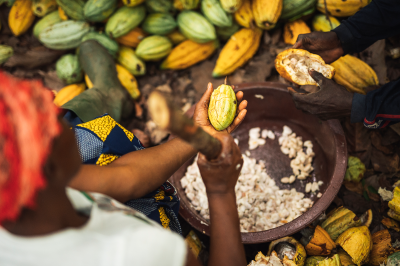
Engagement in Côte d'Ivoire
Fairtrade Impact Report
Last year, the ALDI SOUTH Group, Fairtrade and the Fairtrade cocoa cooperative ECAMOM started a monitoring report to improve the working conditions and livelihoods of local cocoa farmers in Côte d’Ivoire. Now the first impact report “Building Trust. Creating Impact.” has been published.
The first impact report serves as a baseline to provide insights into the work of the cooperative and the farmers, and identifies the challenges they are facing. We aim to provide a picture of what cocoa farming looks like today, and highlight potential areas of opportunities that can enable a long-term partnership between the stakeholders involved in the supply chain.
Read the report: Building trust. Creating impact. First Year Impact Report

Project in Ghana
Income Diversification project
In 2020, the ALDI SOUTH Group has joined forces with the chocolate producer Barry Callebaut and the Cocoa Horizons Foundation to support Ghanaian cocoa farmers to generate alternative income sources to cocoa. The two-year project is co-funded by the Belgian initiative ‘Beyond Chocolate, which is funded by the Belgian Ministry of Foreign Affairs and coordinated by IDH, the Sustainable Trade Initiative.
Activities in the project
The project is intended to support achieving the living income target of ‘Beyond Chocolate’. Within the first year, the following activities were conducted:
- Financial inclusion: 76 ‘Village Saving and Loans Associations (VSLAs)’ were formed to empower women and young people to invest in enterprises and households.
A VSLA provides access to finance in a safe, convenient, and flexible way by pooling together savings and raising resources in a group. It is a low-cost financial service, designed for farmers with irregular income, for example due to the cocoa season, in order to enable continuous solvency and business investments and to improve their family’s livelihoods or to fund household needs.
1008 farmers have benefited from the VSLA training activities so far. By the end of the two-year project, 77 VSLAs will have been founded. - Rejuvenation of cocoa farms: Community nursery projects have started, with the seedlings ready to be planted in the upcoming rainy season. Approximately 80 households will benefit from the rejuvenation of 41 hectares of old cocoa farms.
- Land ownership: Approximately 500 farmers will be provided with official land titles to secure ownership and allow long-term investments on farms by the end of the project. 310 farmers have already signed up. In the first project year, engagement with authorities and government agencies has been achieved.
- Income diversification: Around 110 households were supported in setting up alternative income sources via poultry farming. A second wave of 300 farmers are being currently trained and equipped for poultry farming. Poultry farming is a great alternative as it is less laborious, quick, and a sustainable means to generate income and to bridge the purchasing parity gap, especially when cocoa is out of season.
- Cooking stoves: 580 cooking stoves were distributed to families. The stoves significantly reduce the amount of wood needed to cook, leading families to need less time to cook and a reduced risk for deforestation. The total target is to distribute 500 cooking stoves.
The project is implemented by the Cocoa Horizons Foundation, an independent, non-profit organisation with the purpose to drive cocoa farmer prosperity by creating self-sustaining communities that protect children and nature. Via Barry Callebaut, ALDI is sourcing cocoa from farmers, which benefit from the Cocoa Horizons programme. ALDI customers can enjoy this sustainable product, the Belgian Seashells, during the Christmas season and contribute to a brighter future for cocoa farming communities in Ghana. We are committed to promote and offer products to our customers that are sourced from supply chains supporting a living income and have a decent standard of living for farmers.
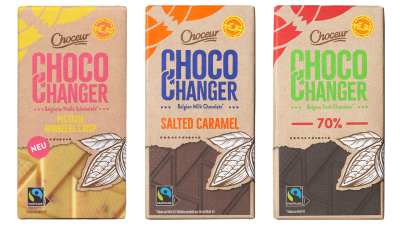
Mission Ally of Tony’s Open Chain
Chocolate bar: Choceur CHOCO CHANGER
A sweet taste, a delicious smell and a little bit(e) of happiness: We are excited to launch our new, responsibly sourced chocolate bar: Choceur CHOCO CHANGER. Our customers’ choice is empowering cocoa farmers in West Africa. Together, we can amplify our positive impact on cocoa farmers and change the norm in the cocoa industry by working on ending poverty, illegal child labour, and deforestation.
As the first international discount retailer to join Tony’s Open Chain in December 2020, ALDI is committed to support Tony’s Open Chain’s ambitious mission to change the norm in the cocoa industry by improving the working conditions along the supply chains and by collaborating in the transparent sourcing of cocoa beans. The cocoa beans for the Choceur CHOCO CHANGER are sourced via Tony’s Open Chain and its 5 Sourcing Principles.
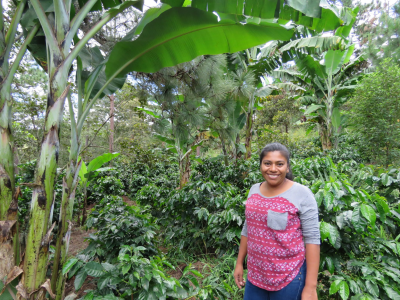
Project in Honduras
Fairtrade coffee project
The ALDI SOUTH Group has been sourcing Fairtrade-certified coffee from Honduras since 2014. Coffee is the most important agricultural export product from Honduras with over 100,000 families growing coffee and over one million people employed by the sector during harvest. Coffee farmers in Honduras face strong challenges resulting from a volatile political situation, high poverty rates, and fluctuation in price on the world market, and the growing effects of climate change.
Project aim
Since 2016, ALDI SOUTH has funded a project initiated by Fairtrade to support coffee cooperatives in Honduras. The project aims to
- improve the administrative and organisational capacities of smallholder producers,
- increase the amount of sustainable coffee production by smallholders and their resilience to climate change,
- increase coffee quality, sales and marketing capacities of cooperatives, and
- integrate vulnerable groups (women, youth, children, workers, indigenous people) more strongly into development and decision-making processes, the implementation of policies and advocacy initiatives at community level.
The Fairtrade premium which is paid to cooperatives for each Fairtrade certified product as well as ALDI’s additional project funds, enable solutions to be found for the above-mentioned challenges, and ensure the long-term sustainability of smallholder coffee production in Honduras. Through these efforts, farmers will become more resilient and prosperous so that a daily cup of coffee purchased from ALDI remains sustainable for all.

Project in Morocco
Fishery improvement project
The project aims to sustainably improve fishery management in order to ensure fishing practices, which comply with the MSC criteria in the long term. In 2014, the ALDI SOUTH Group initiated this project concerning the active improvement of the sustainability of sardine fishing in Morocco.

ALDI UK
Farm Africa Project in Western Kenya
In 2016, ALDI UK became the first UK supermarket to team up with international development charity Farm Africa in a three-year partnership to support young farmers in Kenya. ALDI funds the Growing Futures project to educate and improve the lives of more than 450 young people in Kitale, Western Kenya.
The project trains young people how to grow high-quality crops, like green beans, tomatoes and kale, as well as how to run their farms as businesses. As well as assisting young farmers to improve the quality and amount of food they produce, the project will help ensure they are growing the most valuable crops, support them in finding the best contracts, and enable them to sell crops at higher value markets so they can find a lasting way out of poverty.
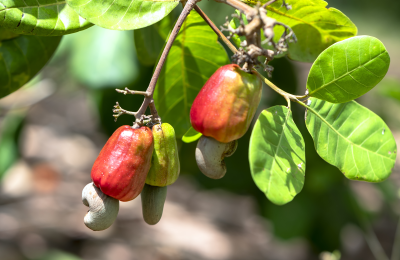
Project in Vietnam
Social Dialogue in cashew supply chains
ALDI seeks to respect human rights and prevent violations in our Vietnamese cashew nut supply chain by supporting the Ethical Trade Norway’s Cashew project. The project strengthens labour standards while having a focus on women and vulnerable groups as well as improves environmental management.
Together with our cashew suppliers, ALDI encouraged processors in the Vietnamese cashew supply chain to participate in social dialogue training during September and November 2019. This training was designed to improve worker and management dialogue, grievance handling and knowledge of trade union rights. The project also trained farmers on labour standards, good agricultural and environmental practices. Additional sessions and supplementary trainings for further Vietnamese supply chain actors followed in July 2020. The project will continue to support farmers, workers and processors over the course of this year with further guidance and knowledge-sharing.

Project in Côte d'Ivoire
Palm oil smallholder project (2017-2021)
Between 2017-2021, the ALDI SOUTH Group, together with ALDI Nord, supported a smallholder project in Côte d'Ivoire in order to pave the way for sustainable cultivation of palm in the area. In close cooperation with our partner Solidaridad, we developed a project that focused on improving smallholder farmers’ knowledge on Best Environmental Practices and on agriculture that respects High Conservation Values (HCV) and natural forests.
Solidaridad offereds training through Farmer Field Schools (FFS) for 2,611 palm oil smallholder farmers and helped restore approximately 250 hectares of forest land in the project area. The team cultivated 17,532 tree seedlings in nurseries that were then distributed to individual farmers, planted in schools and borders of sacred forests, and used to help restore natural reserve areas.
Various partners and stakeholders were involved in the project, including the Inter-professional Association of Oil-Palm Industry (AIPH). This institution has fully endorsed the project’s outcomes and is now installing tree nurseries in other palm oil-growing regions. Additionally the cooperatives engaged are were COOPALEN, UCCOPES, COOPTOSA from the Sud Comoe region, UCOOPALM from the Grand Ponts region, USCOPAHLD from Loh Djiboua and U3SC from San Pedro.
Despite the many challenges facing the project, including COVID-19 restrictions, and political tensions, 90% of the community participants, including community leaders and the youth, reported positive outcomes of the project in the area and increased knowledge from the trainings.

Project in Bangladesh
ALDI Factory Advancement (AFA) Project (2013-2020)
ALDI is committed to promoting human rights in the garment industry. With the ALDI Factory Advancement (AFA) Project, the ALDI SOUTH Group, together with ALDI Nord, has introduced a programme which delivers change in factories that produce our garments in Bangladesh.
Running from 2013 to 2020, the AFA Project placed factory workers and managers at the centre of its activities to find sustainable solutions for improved workplaces. Its core principle was the promotion of dialogue and cooperation between workers and managers. To date, approximately 85,000 workers and their managers of 40 participating factories have benefitted from the project and experienced positive changes in their day-to-day working environment.

Project in Bangladesh
AFA Project Plus for child care services (2016-2019)
From 2016 until 2019, the AFA Project PLUS addressed the critical need for quality childcare for the children of working parents in factories that produce our textile goods in Bangladesh. ALDI supported selected factories participating in the AFA Project in improving their internal day-care services.
Many workers are reliant on these services due to financial constraints and a lack of alternative care options. Together with local non-governmental organisations, we trained caregivers, childcare centre supervisors, nurses and parents working at the factory.
COVID-19 emergency relief in Bangladesh & Myanmar
ALDI & CARE support female garment workers
The impact of the COVID-19 pandemic on garment workers has been devastating. Women make up the majority of the garment sector workforce and they have been affected the most. In 2020, CARE International and the ALDI SOUTH Group teamed up to protect the rights and needs of women in the garment sector in Bangladesh and Myanmar during the pandemic.
These efforts resulted in nearly 5,000 female workers receiving hygiene kits while 1,600 workers received household handwashing facilities in Bangladesh. In Myanmar, we were able to reach more than 76,000 factory workers with sanitising and disinfecting materials and provided face masks for more than 28,000 workers.

Project in Tajikistan and Kyrgyzstan (2018-2021)
Fairtrade project on cottonseed
From 2018-2021, ALDI SOUTH Germany supported the Fairtrade cottonseed project in Tajikistan and Kyrgyzstan. The project aimed to empower smallholder farmers and to improve the quality and supply of non-GMO cotton from Central Asia.
To reach the project goal the following measures were implemented:
- Training of farmers on seed production and multiplication
- Actions to combat GMO-contamination
- Enlargement of cultivable acreage for organic cotton and yield
- Knowledge management and sharing
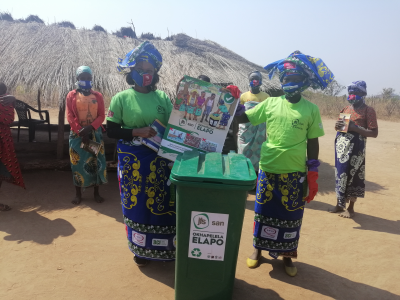
Project in Mozambique
Cotton made in Africa recycling project
In 2019, Cotton made in Africa (CmiA) and the local cotton company SAN-JFS developed a recycling project in Mozambique. This project supports women from local farming communities who operate eco-collection points. Over 72,000 empty pesticide containers were collected and sent for recycling in the first year and benefitted up to 20,000 farmers. With the exclusive support of ALDI, the project is able to continue into a second phase and benefit even more farmers.

ALDI SOUTH Germany & HOFER S/E
Sustainable charcoal from Namibia (2019-2020)
From 2019-2020, ALDI SOUTH Germany and HOFER S/E worked with the Forest Stewardship Council (FSC) in Namibia. The aim of the project was to increase the amount of sustainable and directly traded charcoal on the market, which benefits local farmers directly. After the successfully conclusion of trainings and audits, the farmers are certified according to the FSC Forest Management Standard.

Project in Brazil
Forest protection
According to our CR Principles, the ALDI SOUTH Group is striving to be a carbon-neutral company. Following a significant reduction of greenhouse gas (GHG) emissions and the use of renewable energy across the Group, several ALDI SOUTH countries are climate neutral. Carbon offsets make up for the rest by funding environmental projects.
To continue to deliver against our broader climate target, we are supporting an environmentally-focused project.
Forest protection in Brazil
Forests are not only among the planet's most important carbon reservoirs. They are also home to an enormous diversity of species and are the livelihood for local communities. This project is offering land to small farmers instead of soy plantations. The aim is to continue to preserve the rainforest and to provide its inhabitants - the “Ribeirinhos” - with land rights. This secures the livelihood of the local residents and saves around 3,000 hectares from deforestation.

Project in Ghana
Clean cook stoves
According to our CR Principles, the ALDI SOUTH Group is striving to be a carbon-neutral company. Following a significant reduction of greenhouse gas (GHG) emissions and the use of renewable energy across the Group, several ALDI SOUTH countries are climate neutral. Carbon offsets make up for the rest by funding environmental projects.
To continue to deliver against our broader climate target, we are supporting an environmentally-focused project.
Clean cook stoves in Ghana
In many of the world's poorer regions, families cook their meals over an open fire, often in enclosed spaces. This method of cooking is not energy efficient as large amounts of heat go to waste. Clean cooking stoves are simple devices made from metal or clay. Thanks to their better heat isolation, the clean cooking facilities enable the reduction of charcoal usage of up to 40 %. This increases energy efficiency and decreases carbon emissions. Additionally the project helps to protect local forests, creates new job opportunities and improves health conditions for families.

Project in Uganda
Clean drinking water
According to our CR Principles, the ALDI SOUTH Group is striving to be a carbon-neutral company. Following a significant reduction of greenhouse gas (GHG) emissions and the use of renewable energy across the Group, several ALDI SOUTH countries are climate neutral. Carbon offsets make up for the rest by funding environmental projects.
To continue to deliver against our broader climate target, we are supporting an environmentally-focused project.
Clean drinking water in Uganda
A clean drinking water supply has positive effects both on the climate and the health conditions of local communities. Broken boreholes are identified, repaired and maintained, which gives people access to clean drinking water without having to boil it. The project saves the carbon emissions that would result from boiling water, usually on open fires or inefficient stoves. It also improves people's living conditions and protects local forests by reducing firewood consumption.

Project in Haiti
Fight against plastic
According to our CR Principles, the ALDI SOUTH Group is striving to be a carbon-neutral company. Following a significant reduction of greenhouse gas (GHG) emissions and the use of renewable energy across the Group, several ALDI SOUTH countries are climate neutral. Carbon offsets make up for the rest by funding environmental projects.
To continue to deliver against our broader climate target, we are supporting an environmentally-focused project.
Fight against plastic
Over 8 million tonnes of plastic waste flows into the ocean each year - the equivalent of one truckload per minute. ‘Plastic Bank’ fights against the increasing amount of plastic in the world‘s oceans by offering money for plastic. The plastic is then recycled and turned into new products.

Project in the Philippines
Fight against plastic
According to our CR Principles, the ALDI SOUTH Group is striving to be a carbon-neutral company. Following a significant reduction of greenhouse gas (GHG) emissions and the use of renewable energy across the Group, several ALDI SOUTH countries are climate neutral. Carbon offsets make up for the rest by funding environmental projects.
To continue to deliver against our broader climate target, we are supporting an environmentally-focused project.
Fight against plastic
Over 8 million tonnes of plastic waste flows into the ocean each year - the equivalent of one truckload per minute. ‘Plastic Bank’ fights against the increasing amount of plastic in the world‘s oceans by offering money for plastic. The plastic is then recycled and turned into new products. At the same time, a wind farm project in the Philippines is supported to realize the actual reduction of carbon emissions.

Project in Indonesia
Fight against plastic
According to our CR Principles, the ALDI SOUTH Group is striving to be a carbon-neutral company. Following a significant reduction of greenhouse gas (GHG) emissions and the use of renewable energy across the Group, several ALDI SOUTH countries are climate neutral. Carbon offsets make up for the rest by funding environmental projects.
To continue to deliver against our broader climate target, we are supporting an environmentally-focused project.
Fight against plastic
Over 8 million tonnes of plastic waste flows into the ocean each year - the equivalent of one truckload per minute. ‘Plastic Bank’ fights against the increasing amount of plastic in the world‘s oceans by offering money for plastic. The plastic is then recycled and turned into new products.

Project in Brazil
Fight against plastic
According to our CR Principles, the ALDI SOUTH Group is striving to be a carbon-neutral company. Following a significant reduction of greenhouse gas (GHG) emissions and the use of renewable energy across the Group, several ALDI SOUTH countries are climate neutral. Carbon offsets make up for the rest by funding environmental projects.
To continue to deliver against our broader climate target, we are supporting an environmentally-focused project.
Fight against plastic
Over 8 million tonnes of plastic waste flows into the ocean each year - the equivalent of one truckload per minute. ‘Plastic Bank’ fights against the increasing amount of plastic in the world‘s oceans by offering money for plastic. The plastic is then recycled and turned into new products.

Project in India
Solar energy
According to our CR Principles, the ALDI SOUTH Group is striving to be a carbon-neutral company. Following a significant reduction of greenhouse gas (GHG) emissions and the use of renewable energy across the Group, several ALDI SOUTH countries are climate neutral. Carbon offsets make up for the rest by funding environmental projects.
To continue to deliver against our broader climate target, we are supporting an environmentally-focused project.
Solar energy in India
Replacing energy from fossil fuels with clean energy is an essential part of the fight against global warming. Since energy from solar panels is created without burning fossil fuels, it is considered emission-free. The solar power plant funded through this project contributes to making the Indian power grid greener. In addition, the operators of the plants are involved in various initiatives aimed at positively impacting the welfare of the local community.
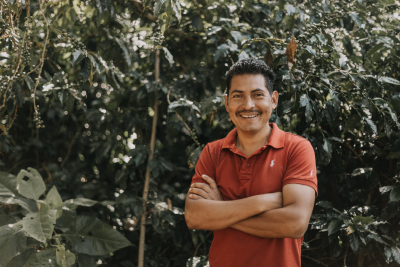
Project in Honduras
Living income gap project
The ALDI SOUTH Group is partnering with Olam Food Ingredients’ (“OFI”) coffee business on a four-year project in Honduras, which aims to narrow the living income gap by improving market access and coffee quality.
The new joint project aims to create a transparent and traceable coffee supply chain all the way to farm level, and narrow the living income gap of 1,000 coffee producers in Honduras by helping them to increase yields, improve coffee quality and achieve Rainforest Alliance certification. Local representatives and farmers will be trained with an innovative smartphone app that enables them to make informed decisions and directly trade their coffee with Olam. Over four years, each farmer will receive tailored trainings, agricultural inputs and tools to help narrow the living income gap.
Tracking the project’s progress will ensure we are not only meeting our shared goals but learning how to make our impact scalable in a way that lifts farmers out of poverty, and that offers a more promising future for generations to come.

Project in Thailand
Worker voice process
ALDI is partnering with the non-profit organization Issara Institute to provide support to both workers and businesses in our supply chain. We will be working together to provide access to grievance mechanisms and remediation actions in ALDI’s Thai food supply chains. The partnership will strengthen current processes and empower workers to speak up if they have concerns about their working environment.
It also helps ALDI to generate learnings on addressing potential barriers in accessing grievance mechanisms and remedy that different categories of workers are facing. For example, Issara supports gender-specific mechanisms by having trained male and female helpline operators and ensuring worker confidentiality and safety in reporting all issues such as harassment. Potential barriers are being addressed through remediating worker raised issues in collaboration with their employer and support of ALDI and its suppliers, for instance through building capacity to look into grievances, talking safely with workers or through other specific training by Issara Institute.
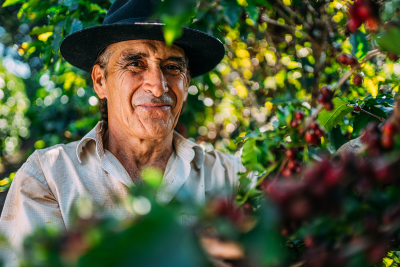
Project in Brazil
Ethical recruitment on coffee farms
Following the development of the Human Rights Impact Assessment (HRIA) action plan, ALDI is partnering with the non-profit civil society organisation Verité on a pilot project on “Promoting Ethical Recruitment in the Coffee Sector of Minas Gerais, Brazil” within Verité’s U.S. Department of Labor-funded Cooperation On Fair, Free, Equitable Employment (COFFEE) Project.
After conducting an HRIA on coffee in Brazil in 2021, ALDI is excited to be able to take immediate action through participating in Verité’s project in Brazil. The aim of this pilot is to better understand and respond to recruitment and labour risks in the Brazilian coffee sector.
The effort is part of Verité’s “COFFEE” Project, which includes pilot projects in Mexico, Colombia and Brazil, along with the development of an open-source Socially Sustainable Sourcing Toolkit (S3T) and online training modules focused on promoting decent labour conditions and fair recruitment in the coffee sector. The tools will be piloted by ALDI and its supply chain actors, such as coffee roasters, traders, and farms.
Our Memberships & Partnerships
We believe the best way to protect the people and the planet is through joint initiatives and partnerships. For this reason, we engage in various multi-stakeholder initiatives.
News
Library
Sustainable Development Goals
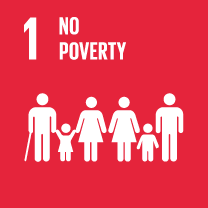
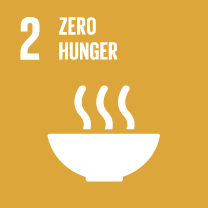
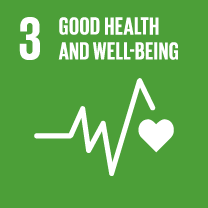
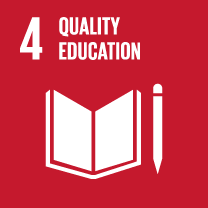
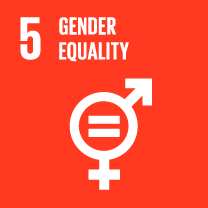
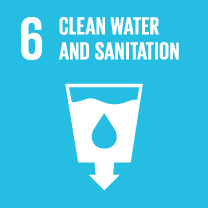
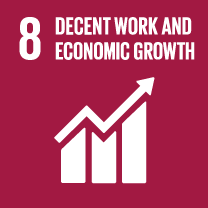
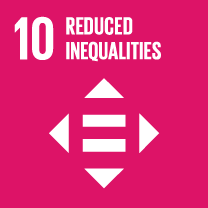
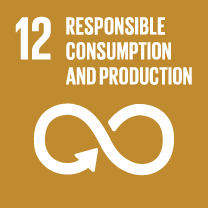
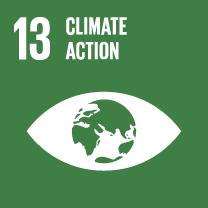
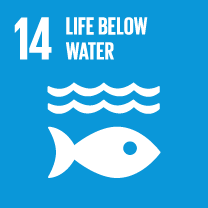
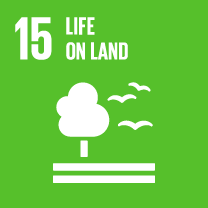
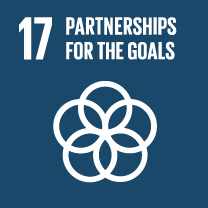
UNGC
Human Rights
Principle 1
Support and respect the protection of human rights
Principle 2
Not complicit in human rights abuses
Labour
Principle 3
Uphold freedom of association and recognition of right to collective bargaining
Principle 4
Elimination of forced and compulsory labour
Principle 5
Abolition of child labour
Principle 6
Elimination of discrimination in respect of employment and occupation
Environment
Principle 7
Precautionary approach to environmental challenges
Principle 8
Promote environmental responsibility
Principle 9
Development and diffusion of environmentally friendly technologies
Anti-Corruption
Principle 10
Work against corruption in all its forms
